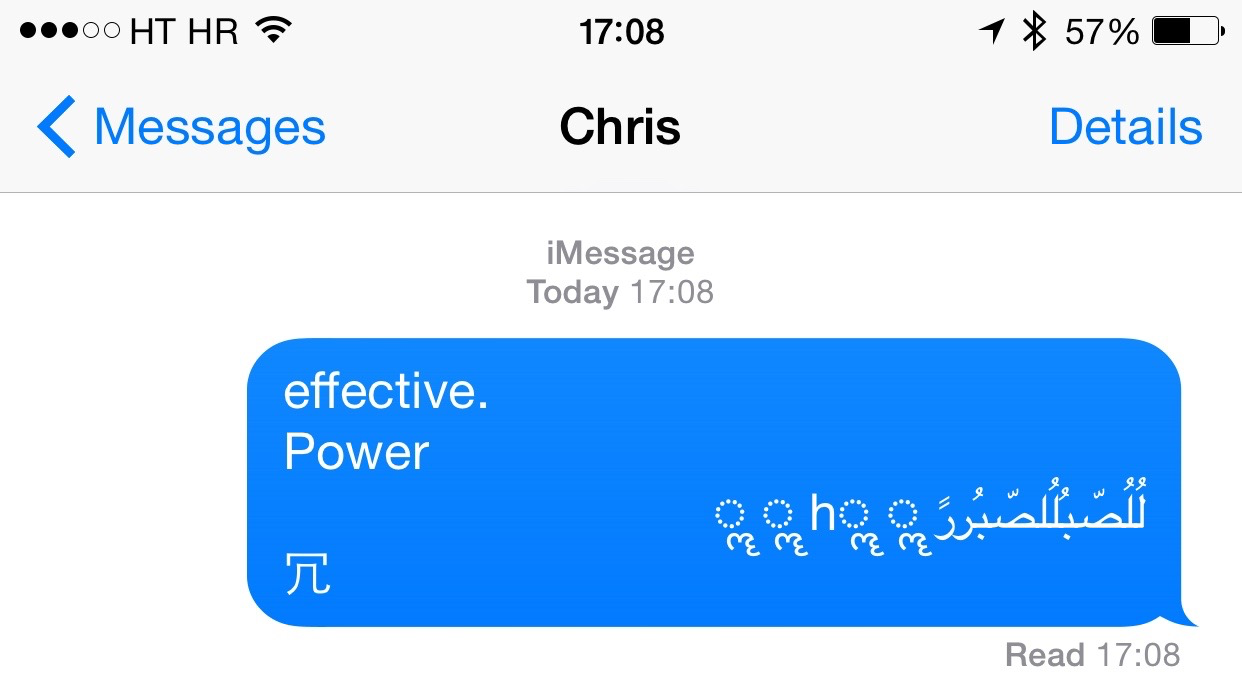In a new support document published Thursday night, Apple acknowledges the Messages bug that was first uncovered two days ago, offering a simple workaround to temporarily circumvent the issue, while announcing a fix will be available via a software update soon.
The so-called Unicode of Death, also know as Effective Power, is an issue that stems from the way Unicode decodes characters, overloading the device’s memory, and causing resprings and reboots. Many users are reporting they are unable to open the Messages app after receiving that string of text.
Apple had previously sent statements to select media outlets acknowledging the issue, but on Thursday night, the company published an official support document recognizing the issue and offering a temporary workaround for it.
Apple is aware of an iMessage issue caused by a specific series of unicode characters and we will make a fix available in a software update. Until the update is available, you can use these steps to re-open the Messages app.
Step 1: Press and hold the Home button to invoke Siri. Once activated, ask Siri to “read unread messages.”
Step 2: Siri will sort of read the message (it is impossible for it to actually speak it in proper English), and then it will ask if you want to reply to the message. Say yes.
Step 3: Say anything. The actual content of the reply doesn’t matter. What matters is sending a message.
Step 4: Once the reply has been sent, you should be able to open the Messages app. From there, swipe to delete the entire conversation containing the string of characters, or tap and hold on the malicious message, tap More, and then delete the message from the conversation.
This is not the first workaround we’ve seen for this issue. We actually published several options yesterday. Users with jailbroken devices also have the ability to install third-party tweaks that will prevent the issue to happen in the first place.
Similar to the statements the company had issued earlier this week, the support document published Thursday night also mentions the company will be releasing a fix via a software update soon, presumably along iOS 8.4, which is still in beta stage.
